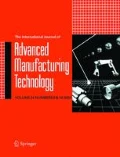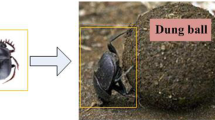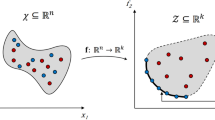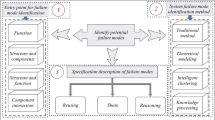Abstract
In order to produce the mechanical assemblies with the high quality, the finest functionality, and the low cost, the optimal tolerance synthesis can be a useful tool in the design stage. The degradation of components due to some operational or environmental factors (such as the thermal cycling, the mechanical deformation, and the wear) can lead to dimensional variations in components and fall-off of the functionality of the product. In addition, different manners of the degradation on the internal and external dimensions can cause asymmetric deviations in the dimensions. On the other hand, the effect of degradation on the product quality has not been considered in most researches. In this paper, a new multi-objective framework is proposed for optimal asymmetric tolerance synthesis of mechanical assemblies with degrading components. In this method, the optimal tolerances are allocated based on ensuring the fulfillment of the product’s functional requirements, maximizing the product quality, and minimizing the total cost over the lifetime of the product. To incorporate the degradation effect into the loss function concept, the present worth of the expected quality loss (PWL) is formulated in terms of asymmetric tolerances. Accordingly, the functional process capability and manufacturing cost are developed based on asymmetric tolerances and the degradation effects. In order to extract Pareto fronts of optimal solutions, the elitist Non-dominated Sorting Genetic Algorithm II as an evolutionary generating methodology is utilized. In solving multi-criteria tolerance synthesis problem by a generating method, selecting the best tolerances from the obtained optimal Pareto solutions is a significant challenge. In this paper, to find the best asymmetric tolerances from Pareto solutions, a combined Shannon’s entropy-based TOPSIS algorithm is used. Finally, a bi-directional non-back drivable roller clutch assembly as an industrial case study is considered to illustrate the efficiency of the proposed method, and the obtained results are compared and discussed for verification.
Similar content being viewed by others
References
Huang MF, Zhong YR, Xu ZG (2005) Concurrent process tolerance design based on minimum product manufacturing cost and quality loss. Int J Adv Manuf Technol 25(7):714–722
Chase KW, Greenwood WH, Loosli BG, Hauglund LF (1990) Least cost tolerance allocation for mechanical assemblies with automated process selection. Manuf Rev 3(1):49–59
Chase KW (1999) Minimum cost tolerance allocation. Department of Mech. Engg., Bringham Young University, ADCATS Report, (99–5)
Hsieh KL (2006) The study of cost-tolerance model by incorporating process capability index into product lifecycle cost. Int J Adv Manuf Technol 28(5–6):638–642
Sanz-Lobera A, Sebastián MA, Pérez JM (2010) New cost–tolerance model for mechanical part design. Int J Adv Manuf Technol 51(5–8):421–430
Choi HGR, Park MH, Salisbury E (2000) Optimal tolerance allocation with loss functions. J Manuf Sci Eng 122(3):529–535
Chou CY, Chang CL (2001) Minimum-loss assembly tolerance allocation by considering product degradation and time value of money. Int J Adv Manuf Technol 17(2):139–146
Moskowitz H, Plante R, Duffy J (2001) Multivariate tolerance design using quality loss. IIE Trans 33(6):437–448
Chou CY, Chen CH (2001) On the present worth of multivariate quality loss. Int J Prod Econ 70(3):279–288
Prabhaharan G, Asokan P, Rajendran S (2005) Sensitivity-based conceptual design and tolerance allocation using the continuous ants colony algorithm (CACO). Int J Adv Manuf Technol 25(5–6):516–526
Wang Y, Zhai WJ, Yang LP, Wu WG, Ji SP, Ma YL (2007) Study on the tolerance allocation optimization by fuzzy-set weight-center evaluation method. Int J Adv Manuf Technol 33(3–4):317–322
Movahhedy MR, Khodaygan S (2007) Tolerance analysis of mechanical assemblies with asymmetric tolerances (No. 2007-01-0407). SAE Technical Paper
Mao Huang Y, Shiau CS (2009) An optimal tolerance allocation model for assemblies with consideration of manufacturing cost, quality loss and reliability index. Assem Autom 29(3):220–229
Janakiraman V, Saravanan R (2010) Concurrent optimization of machining process parameters and tolerance allocation. Int J Adv Manuf Technol 51(1–4):357–369
Khodaygan S, Movahhedy MR (2011) Tolerance analysis of assemblies with asymmetric tolerances by unified uncertainty–accumulation model based on fuzzy logic. Int J Adv Manuf Technol 53(5–8):777–788
Khodaygan S, Movahhedy MR, Fomani MS (2010) Tolerance analysis of mechanical assemblies based on modal interval and small degrees of freedom (MI-SDOF) concepts. Int J Adv Manuf Technol 50(9–12):1041–1061
Khodaygan S, Movahhedy MR, Foumani MS (2011) Fuzzy-small degrees of freedom representation of linear and angular variations in mechanical assemblies for tolerance analysis and allocation. Mech Mach Theory 46(4):558–573
Peng H (2012) Concurrent tolerancing for design and manufacturing based on the present worth of quality loss. Int J Adv Manuf Technol 59(9–12):929–937
Walter M, Wartzack S (2013) Statistical tolerance-cost-optimization of systems in motion taking into account different kinds of deviations. In: Smart Product Engineering. Springer, Berlin, Heidelberg, pp 705–714
Khodaygan S, Movahhedy MR (2012) Fuzzy-based analysis of process capability for assembly quality assessment in mechanical assemblies. Int J Prod Res 50(12):3395–3415
Khodaygan S, Movahhedy MR (2014) Functional process capability analysis in mechanical systems. Int J Adv Manuf Technol 73(5–8):899–912
Khodaygan, S., & Movahhedy, M. R. (2014). Robust tolerance design of mechanical assemblies using a multi-objective optimization formulation (No. 2014-01-0378). SAE Technical Paper
Khodaygan S, Movahhedy MR (2016) A comprehensive fuzzy feature-based method for worst case and statistical tolerance analysis. Int J Comput Integr Manuf 29(1):42–63
Walter MSJ, Spruegel TC, Wartzack S (2015) Least cost tolerance allocation for systems with time-variant deviations. Procedia Cirp 27:1–9
Wu Z, Liu T, Gao Z, Cao Y, Yang J (2016) Tolerance design with multiple resource suppliers on cloud-manufacturing platform. Int J Adv Manuf Technol 84(1–4):335–346
Liu S, Jin Q, Dong Y, Wang Y (2017) A closed-form method for statistical tolerance allocation considering quality loss and different kinds of manufacturing cost functions. Int J Adv Manuf Technol 93(5–8):2801–2811
Natarajan J, Sivasankaran R, Kanagaraj G (2018) Bi-objective optimization for tolerance allocation in an interchangeable assembly under diverse manufacturing environment. Int J Adv Manuf Technol 95(5–8):1571–1595
Khodaygan S (2018) An interactive method for computer-aided optimal process tolerance design based on automated decision making. Int J Interact Des Manuf. https://doi.org/10.1007/s12008-018-0462-z
Teran A, Pratt DB, Case KE (1996) Present worth of external quality losses for symmetric nominal-is-better quality characteristics. Eng Econ 42(1):39–52
Pearn WL, Kotz S (2006). Encyclopedia and handbook of process capability indices: a comprehensive exposition of quality control measures, series in quality, reliability & engineering statistic, vol 12. World Scientific, USA
Greenwood WH, Chase KW (1990) Root sum squares tolerance analysis with nonlinear problems. J Eng Ind 112(4):382–384
Deb K, Pratap A, Agarwal S, Meyarivan TAMT (2002) A fast and elitist multiobjective genetic algorithm: NSGA-II. IEEE Trans Evol Comput 6(2):182–197
Yoon KP, Hwang CL (1995) Multiple attribute decision making: an introduction (Vol. 104). Sage publications, Thousand Oaks
Shannon CE (2001) A mathematical theory of communication. ACM SIGMOBILE Mob Commun Communic Rev 5(1):3–55
Deng H, Yeh CH, Willis RJ (2000) Inter-company comparison using modified TOPSIS with objective weights. Comput Oper Res 27(10):963–973
Controzzi M, Luciani LB, Montagnani F (2017) Unified approach to bi-directional non-back drivable roller clutch design. Mech Mach Theory 116:433–450
Author information
Authors and Affiliations
Corresponding author
Rights and permissions
About this article
Cite this article
Khodaygan, S. A multiple objective framework for optimal asymmetric tolerance synthesis of mechanical assemblies with degrading components. Int J Adv Manuf Technol 100, 2177–2205 (2019). https://doi.org/10.1007/s00170-018-2658-6
Received:
Accepted:
Published:
Issue Date:
DOI: https://doi.org/10.1007/s00170-018-2658-6




